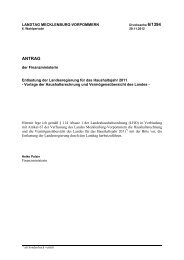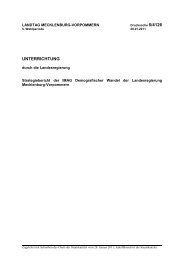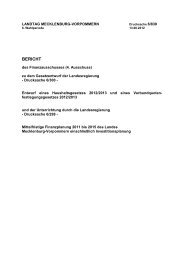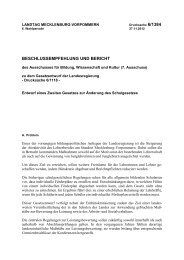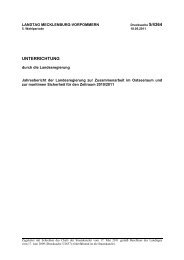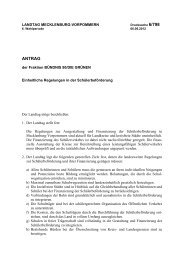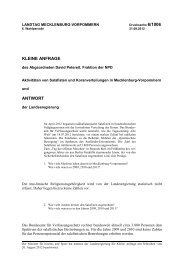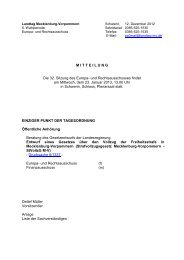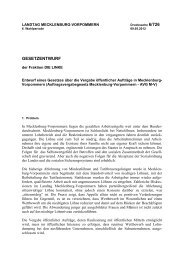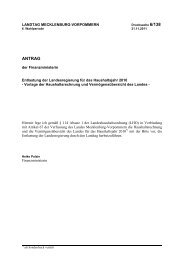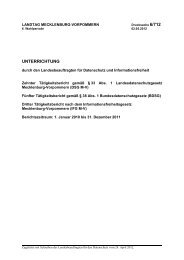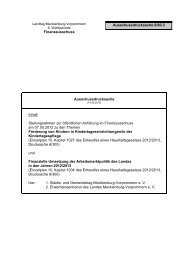Baltic Rim Economies - Baltic Port List
Baltic Rim Economies - Baltic Port List
Baltic Rim Economies - Baltic Port List
Create successful ePaper yourself
Turn your PDF publications into a flip-book with our unique Google optimized e-Paper software.
Expert article 905 <strong>Baltic</strong> <strong>Rim</strong> <strong>Economies</strong>, 21.12.2011 Quarterly Review 5�2011<br />
Six more years with Vladimir Putin<br />
By Lena Jonson<br />
On 24 September 2011 it was clearly demonstrated that Dmitry<br />
Medvedev’s presidency had come to an end. He declared that<br />
he steps back in favour of the candidacy of Vladimir Putin in<br />
the March 2012 presidential elections. Medvedev’s decision<br />
was perceived by most independent observers as the end of<br />
the 2009 modernization campaign and its embedded promises<br />
of political reform. Domestic critics regard the return of Putin as<br />
president a catastrophe for the country.<br />
The serious problems described by Medvedev in his article<br />
“Russia, Go!” and in which he motivated the “modernization”<br />
campaign still exist. What Medvedev described as illnesses of<br />
a system, such as widespread corruption, lack of transparency,<br />
of democracy and rule of law, are as serious, or even more<br />
serious, today. How will Putin, during a third term as president,<br />
respond to these challenges? According to most Western<br />
observers and many Russian analysts, the Russian political<br />
system is highly obsolete in the context of the complexities of<br />
contemporary society. If Putin understood the scope of this<br />
challenge, his programme would be expected to include<br />
political reform.<br />
Putin’s critics do not expect political reform. In their<br />
analysis, Putin is both the creator of the present power system<br />
and its prisoner. He is at the top of a system created to<br />
guarantee him full control and stability. The power vertical, the<br />
large percentage of siloviki in state administration, and the<br />
Putin clan control of economic life are backbones of the<br />
system. At the same time corruption, which spreads due to<br />
lack of transparency and rule of law, undermines the very<br />
system and prevents control and management from above.<br />
What Putin needs is to transfuse new blood into the<br />
system, blood which could help vitalise and modernize the<br />
system without revising its foundation. Yet, as pointed out by<br />
his critics, Putin has consummated a system where channels<br />
from below for demands, requests, and new ideas have been<br />
closed. Political alternatives are prevented by laws,<br />
regulations, and practices from above which make it utterly<br />
difficult for all efforts of independent political mobilization.<br />
The United Russia party today constitutes the major<br />
channel for the communication of ideas upwards. Major career<br />
paths run through pro-Putin youth organizations. Although time<br />
has changed and no parallels should be made with the Soviet<br />
Communist Party nomenklatura, there are similarities with the<br />
way that alternative communication channels have been<br />
closed under Putin. The present system provides new faces<br />
but sorts out new ideas from reaching the official political<br />
discourse and agenda. Medvedev recently launched a website<br />
called “large government” to encourage new political ideas<br />
within the framework of United Russia’s discourse. Yet, as long<br />
as there are no political mechanisms for introducing new ideas,<br />
except through the party of power, and no political institutions<br />
to be held accountable, “large government” innovations remain<br />
an illusion.<br />
Putin has demonstrated, ever since he came to power in<br />
2000 that his instincts as well as the instincts of the large<br />
contingent of siloviki in state decision-making positions, are to<br />
guarantee that the right of free speech, meetings, and<br />
demonstrations will remain highly restricted. As returning<br />
president he needs to try at least some piecemeal political<br />
reform during the years to come. Otherwise, six more years of<br />
restrictions postponing political reform could be highly<br />
counterproductive for his regime and for society at large.<br />
According to sociological research, Russian society is<br />
undergoing deep changes. During the last more than one and<br />
a half years we have witnessed a trend of reduced support for<br />
the United Russia party, and for Medvedev and Putin. United<br />
66<br />
Russia is, however, guaranteed a majority in the State Duma,<br />
and Putin can be sure of being elected next March. Research<br />
shows that the strongest critics live in the large cities and<br />
belong to the middle class, individuals who have no party to<br />
articulate their demands. Some sociologists talk in terms of a<br />
“crisis in political confidence”. Civic grass-root movements<br />
have mobilized people on specific issues and there are reports<br />
of spontaneous and temporary organizations and<br />
manifestations around the country by wider social groups in<br />
society on issues such as benefits, housing and employment.<br />
The use of laughter, irony and satire as political weapons by<br />
the democratic opposition during the last autumn are signs of a<br />
new political atmosphere in society.<br />
Thus, the future President will meet a completely new<br />
situation with regard to the mood of the population. However,<br />
as pointed out by several analysts, the new situation includes<br />
not only discontent from the democratic opposition. Far<br />
stronger are the ultra-right nationalists fed by frustrated<br />
discontent and xenophobia. Putin seems more receptive to the<br />
mood and arguments from this constituency. He might have<br />
been taken by surprise by the mass manifestation of the<br />
almost 10.000 frustrated xenophobic young men at the<br />
Manezh Square in December 2010. He knows the strength of<br />
these moods, and he has on several occasions demonstrated<br />
his will to play the nationalist card. Therefore, he also<br />
cautiously prevents the nationalists from creating any<br />
independent organization outside or within the official party<br />
system.<br />
With an economy highly dependent upon the export on oil<br />
and gas, and a state budget based on expectations on high<br />
world market prices on energy, Russia is vulnerable to<br />
fluctuations. The budget adopted recently for the period 2012-<br />
2014 with cuts of means to the social sector and increases to<br />
defence and internal security give small margins in case<br />
popular discontent would explode.<br />
The issue of political reform will, whether he wants it or not,<br />
haunt Putin during the coming years. As he is basically<br />
unwilling to respond to such demands, Putin will take on<br />
measures to prevent them from spreading. But this may<br />
instead give nourishment for the opposition to grow. While the<br />
parties of the democratic opposition are viewed as no<br />
alternative for most people as demonstrated by opinion polls, a<br />
new generation of democratic leaders may appear from the<br />
civic grass-root movements. People like Alexei Navalnyi,<br />
Evgeniya Chirikova and Ilya Yasin may be among a future<br />
generation of leaders. However, if a reform movement is to<br />
succeed, a major role must be played by reform-minded<br />
groups already within the political elite. So far, there are no<br />
signs of this. The Putin elite seems united so far.<br />
The changes in the Russian political atmosphere during<br />
the last one and a half years may be the faint sign of<br />
something new in the making, so far mainly hidden under the<br />
surface. Although this new popular energy may not materialize<br />
in the short run, at the end of the day it may become important,<br />
perhaps decisive, for political reform and modernization. This<br />
is something that a Putin 2.0 needs to take into account.<br />
Lena Jonson<br />
PhD, Head of Russia Research Program<br />
Swedish Institute of International Affairs<br />
Sweden<br />
� Pan-European Institute � To receive a free copy please register at www.tse.fi/pei �



